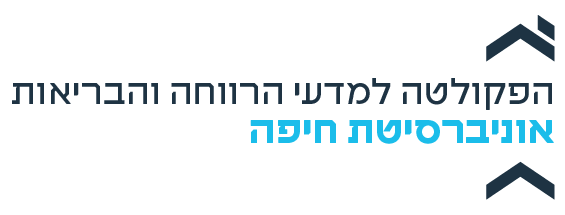ADMISSION REQUIREMENTS
First-year candidates to the School of Social Work must be over the age of 20 and must fulfill all of the University’s general requirements as well as those of the School of Social Work.
Candidates with Previous Study Credits
Candidates with a BA degree in another field will be accepted if they have a grade point average of 85 and above and after a personal interview has been conducted.
Candidates who studied previously at Haifa University, but did not complete their BA degree must fulfill all requirements demanded by the School of Social Work in the year in which they want to apply.
Graduates of a social workers training college must fulfill all requirements demanded by the School of Social Work in the year in which they want to apply.
Candidates who studied Social Work at another institution must undergo a personal interview, and must have proven field training skills and experience. Upon acceptance, they must fill out a form listing all requirements and relevant information from the previous academic institution. This form is available at the Secretary’s office.
Upon acceptance, candidates with previous study credits will receive a written letter of confirmation, exempting them from the accredited course/s. Only those students with an authorized letter of confirmation, signed and stamped by the head of the BA Program, will receive such an exemption/s. Students seeking such exemptions should contact the head of the BA Program in writing, submitting all grades and relevant syllabuses from the previous institution.
Students requesting recognition for completing a BA degree at another institution can receive up to a total of 12 academic study credits.
Study Program - Details and Guidelines
Study program - duration and structure
The BA degree in Social Work is a 3-year study program; the student must fulfill all study requirements as detailed in the published program guidelines for the academic year in which he/she begins studying, as well as any and all announcements and notices published during the student’s academic study years.
Theoretical Studies
The 3-year academic period includes theory, practice and research-related studies.
First Year
The program is entirely comprised of mandatory courses, including: The Foundations of Social Work, Introduction to Social Work, introductory courses in the humanities and behavioral sciences, Introduction to Statistics, and a computer skills exemption test (see class schedule).
Second Year
The entire program is comprised of mandatory courses, including: basic theoretical and practical knowledge about private, group, and community work; theoretical courses; and research methods (see class schedule).
In the second year of academic studies, Field Studies are conducted together with courses dealing with intervention methods, group work, and community work.
Third Year
The program is comprised of both mandatory and elective courses, including: practical and theoretical studies focused on one of the following social services systems:
Family Welfare: For example, children, youth, the elderly and family-related services
Criminality, Delinquency and Addiction: For example, probation and prison services
Social Health: For example, hospitals; rehabilitation and detox centers
Organization and Community: For example, community centers
Field Studies are conducted along with advanced intervention methods and a theoretical course related to the field.
In addition, an annual research seminar on social work-related topics is also required.
Field Studies
In the first academic study year, students participate in a pre-Field Studies program, and learn about social-learning involvement. The actual Field Studies program takes place in the second and third years of study – in the form of 17 weekly hours, usually 2-3 days a week. Students learn to implement the individual, group and community methods practiced in the social work profession, through one-on-one and group instruction. Field studies are conducted at different agencies - from throughout the northern part of Israel down to Netanya, such as: social services and rehabilitation centers, children and youth agencies, hospitals, mental health clinics, prisons, old-age homes and geriatric centers. After completing the first and second academic years, students are required to complete a “Field Studies Placement Questionnaire”. If the questionnaire isn’t submitted to the Field Studies unit on time, the student will not be ensured a place in the Field Studies unit for the coming year. Special placements for students with medical disabilities are provided, (details are available in the Field Studies orientation information page).
Students are responsible for all travel expenses related to Field Studies. The student’s work is evaluated bi-annually by the instructors. The evaluation process is conducted by the student’s instructor. The evaluation is then transferred for authorization by the head of the Field Studies unit. The final Field Studies grade will be based upon this evaluation by the Field Studies unit (pass/fail).
The Field Studies part of the program takes place over the course of the academic year. In exceptional cases, in which Field Studies take place during the summer, students are responsible for financing all Field Studies-related expenses.
Completion of Studies
Upon completing the study program at the School of Social Work, students will receive their BA degree in Social Work upon the following conditions:
Fulfillment of all requirements listed above
A minimum grade point average of 60 in all of the study program’s theoretical courses
A “passing” grade in Field Studies
All School requirements and conditions must be complied with, within a time period that does not exceed 5 consecutive study years.

